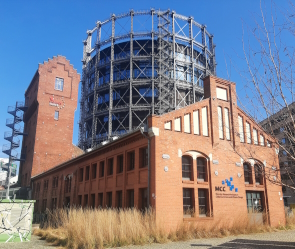MCC is a scientific think tank

MCC (contact info here) combines high-level economic and social science analyses with a structured approach at the science-policy interface. We explore and provide solution-oriented policy portfolios for climate change mitigation, for governing the global commons in general, and for enhancing the many aspects of human wellbeing. Internally, we are committed to a working and interpersonal culture of diversity, tolerance, and equal opportunity.
What we stand for
With our work, we aim to contribute to an increase in human well-being, considering the interdependencies with planetary boundaries. In the context of multiple unfolding crises, our goal is to enhance and promote deliberative and participatory decision-making. We are committed to support the idea of a liberal and common-good oriented democracy.
What we do
We do excellent and methodologically rigorous research in economics and social sciences, providing and analysing concrete policy options for climate change mitigation and for sustaining global commons. These global commons consist of natural resources relevant to the world as a whole (e.g. atmosphere, land, forests) and social commons (e.g. education, health, transport). We must avoid overuse of natural resources and ensure sufficient supply of social commons; both require a farsighted and international view, which governments and other societal actors often lack. As a scientific think tank, MCC helps to close this gap.
We give scientific and evidence-based input to important and polarised debates in our democratic societies, e.g. on climate and the economy: we assess the space of policy options that can both stop global heating and enhance prosperity and human wellbeing.
We aim to understand the policy process to make our research policy-relevant. We consider the political economy realities, and we acknowledge the decision-making problem of politics – i.e. how to manage trade-offs between different policy goals.
Our advising of policymakers, from the regional to the international level, is based on our own model for the science-policy interface (“PEM”), which calls for policy relevance without being policy prescriptive. This commitment to deliberative decision-making is flanked by active public relations work and the provision of easily understandable content for the media.
Internally, we base our work on the following values: cooperative spirit, group-oriented modes with cross-cutting projects and activities (research and social), open-minded discussion culture across disciplines and status groups, diversity, tolerance and equal opportunity.
MCC scientists publish at a particularly high frequency in internationally renowned, peer-reviewed journals, which in 2017 led to MCC being ranked as Europe’s best performing climate research institute relative to its size. MCC is not constrained by sectional interests or pre-determined outcomes in its choice of research topics and in the provision of its expertise.
Our resources
MCC was founded in 2012 by Stiftung Mercator and the Potsdam Institute for Climate Impact Research (PIK) as a non-profit company (gGmbH). It is currently funded through core funding from Stiftung Mercator of 2.1 million euros per year on average, and project-related third-party funding, which totalled 3.2 million euros in 2022 (details here). Staffing in 2023 was numbered 65 employees on average, representing a total of 45 full-time equivalents.
Our economic and social science research is organised around six working groups plus the cross-sectional Policy Evaluation Lab. The interface with politics (policy dialogue) is shaped by a Policy Unit. Important prerequisites for the successful interaction of research and policy dialogue are MCC's distinctive competence in the area of evidence synthesis.
For download: detailed information can be found in our Report to the Expert Advisory Board dating from 2022 (English, 1,9 MB)





